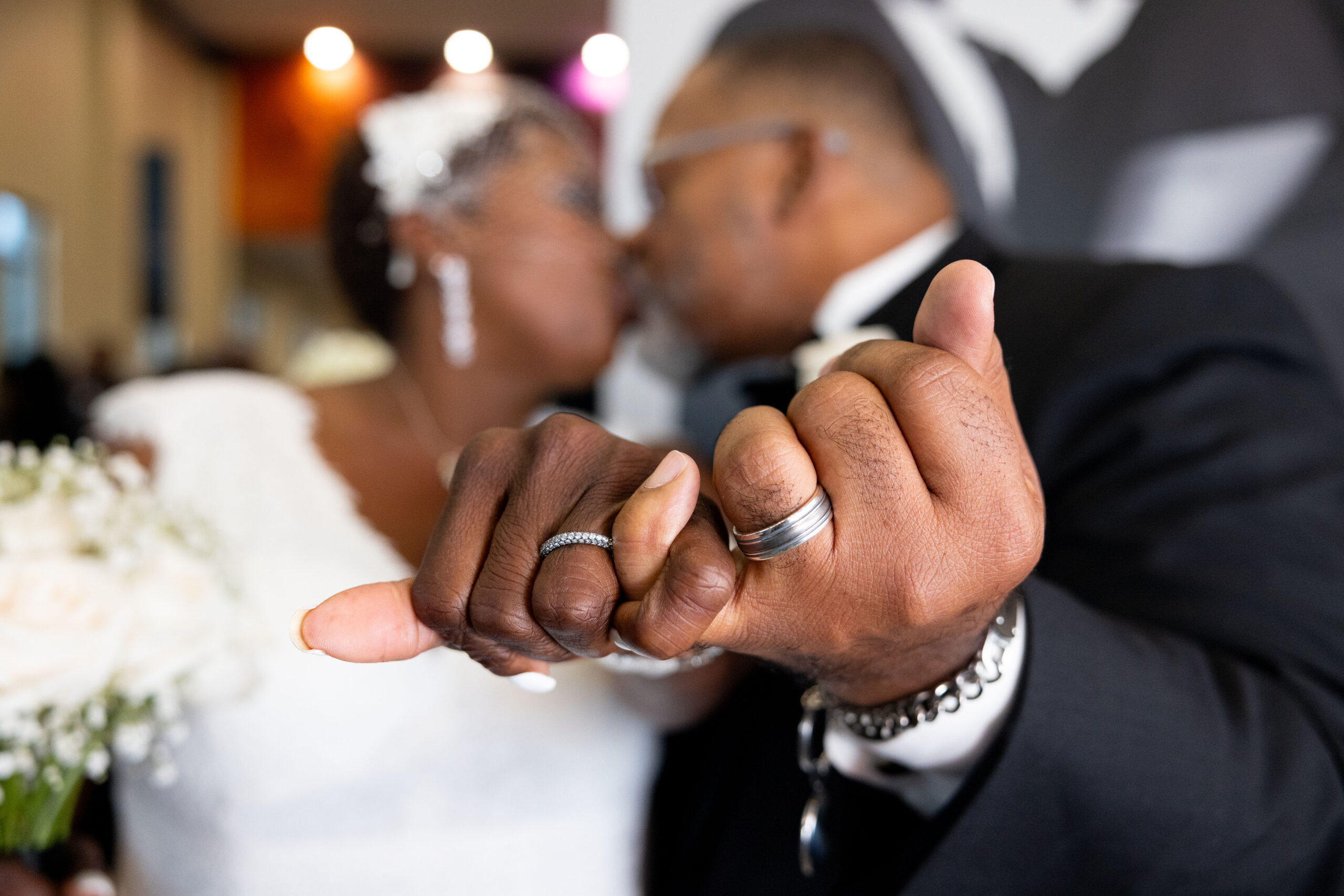More than 20 Black couples got all dressed up, thought about what they’d learned in pre-marital counseling, and got married at a Dallas megachurch this past weekend to upend the status quo: the low and declining numbers of Black men and women marrying one another.
The event was the sixth annual Grand Wedding at the 10,000-member Concord Church, which has made strong marriage a cornerstone of its ministry.
The goal is to amplify “God’s design for marriage and strengthening relationships and families,” Senior Pastor Bryan Carter said in a statement.
The statistics that the newly married couples are defying are unforgiving.
Nearly half of Black adults in America have never married, compared to just 29% of non-Black adults, according to the Pew Research Center, a nonprofit in Washington, D.C., Black women face a 49% unmarried rate while Black men hover around 48% according to the same report. But on Saturday, several couples challenged those statistics in the most public way possible, culminating a journey that evolved through a 90-day challenge.
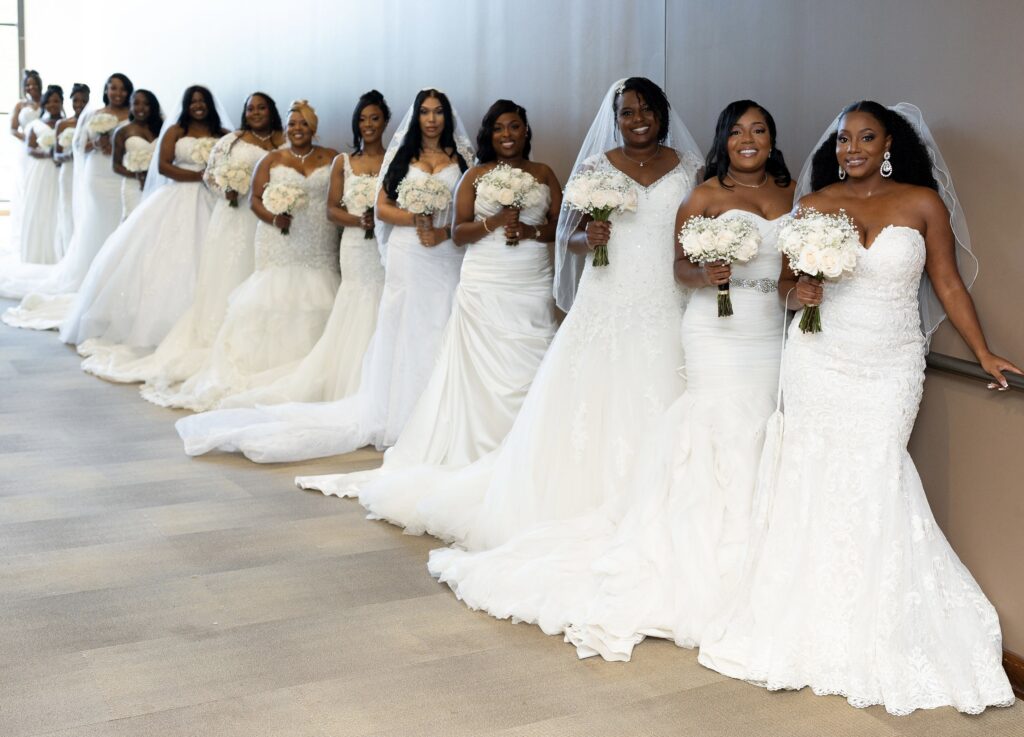
Local and national retailers helped make Saturday special. There gowns from a local shop, tuxedos from Mr. Tuxedo, rings from James Avery Artisan Jewelry and Pandora, beauty services from volunteers, and photography services during the couples’ first dances. Performing artists supported the couples, too. There were performances by Broadway star Avery Wilson, while gospel singers David and Tamela Mann– stars of Tyler Perry’s “Meet the Browns” and “House of Payne”– joined thousands in witnessing the ceremonies.
Carter first launched the Grand Wedding in 2009, he said, to honor God’s design for marriage. With Saturday’s ceremony, he has now guided more than 100 couples through a challenge the church calls “From Cohabitation to Covenant.” Each couple moves apart, analyzes their relationships through biblical principles, and commits to rebuilding on what they believe is stronger ground.
But even with this unique approach to elevating marriage between Black people, the weight of history remains.
The declining marriage rates among Black Americans didn’t happen in a vacuum. Dr. D. Ivan Young, professional fellow, Institute of Coaching, McLean, an affiliate of Harvard Medical School, sees the hesitation around marriage as an extension of lived experience rather than disinterest.
“Many successful professionals I coach grew up in environments where instability was common,” Young told Black News & Views in a telephone interview. “Systemic inequities, mass incarceration, and economic disparities have disrupted families for generations. When stability is rare, people become cautious about entering legally binding commitments, even if they feel love,” he said.
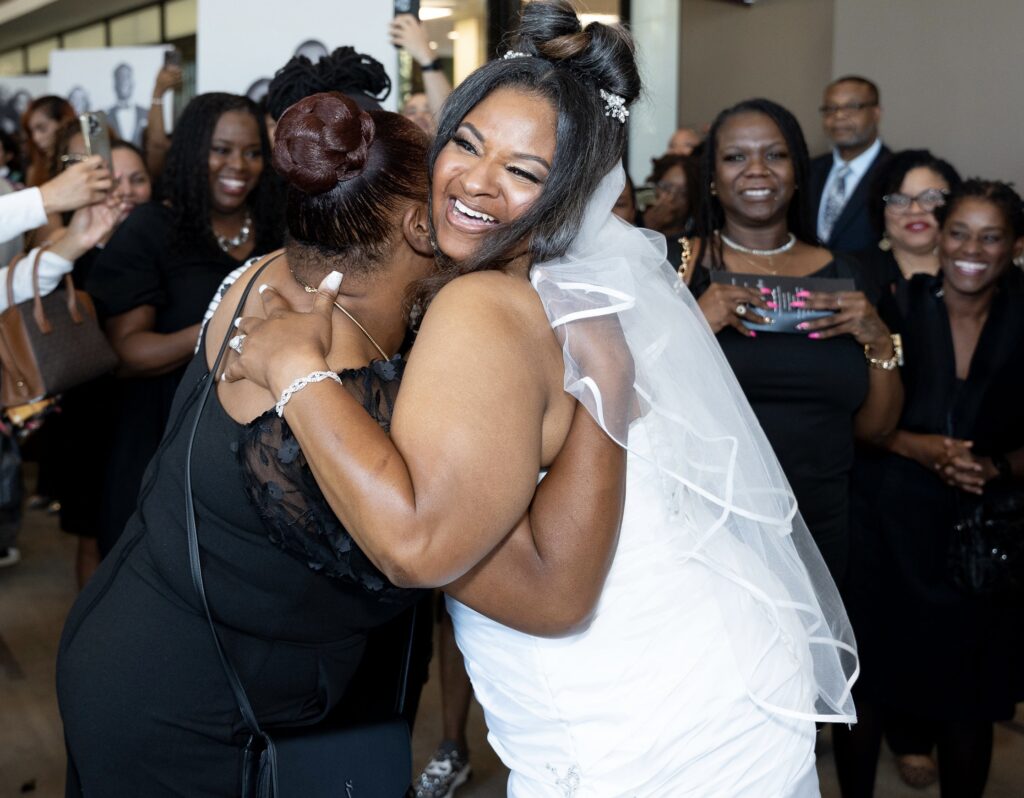
The numbers bear this out. According to 2025 data from the Pew Research Center, 48% of Black adults have never tied the knot, compared with 29% of non-Black adults. The report suggests that Black men are more likely than Black women to be married (36% versus 29%), while Black women are significantly more likely to be divorced, separated, or widowed (25% versus 15%).
These figures reflect not just personal choices but the accumulated impact of what Houston-based marriage and family therapist Roma Williams describes as “resilience and weight” carried simultaneously.
Williams, who has more than a decade of experience counseling couples, argues that Black couples today are carrying both resilience and weight.
“There is a strong desire to break cycles and build healthier, lasting connections,” she told Black News & Views. “On the other hand, systemic inequities and generational trauma shape how they view commitment, communication, and even trust.”
The constant narrative that Black marriages are unachievable or inherently unstable frustrates professionals who work daily with couples committed to making their relationships work. Williams pushes back against these stereotypes with data from her own practice.
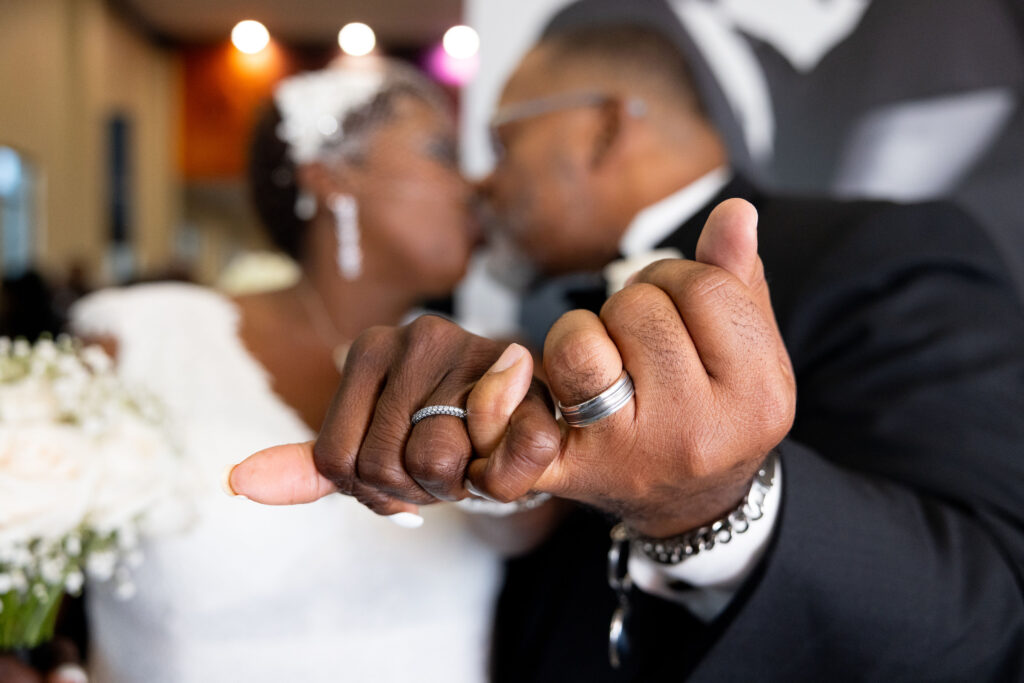
“I work with couples across four states, and I see Black couples fighting for their marriages just as much as anyone else,” she said. “The difference is Black couples are showing up to therapy, doing the work, and rewriting those narratives every day.”
Beverly Andre, a marriage and family therapist who works with engaged and newlywed couples and has appeared on Netflix and “The Tamron Hall Show,” identifies cultural pressure to maintain appearances as a barrier.
“Historically, the pressure to protect the image of marriage, and to ‘keep people out of it,’ is a unique influence on Black couples, especially if they’re in the church,” Andre said. “This mentality keeps a lot of Black couples from seeking support.”
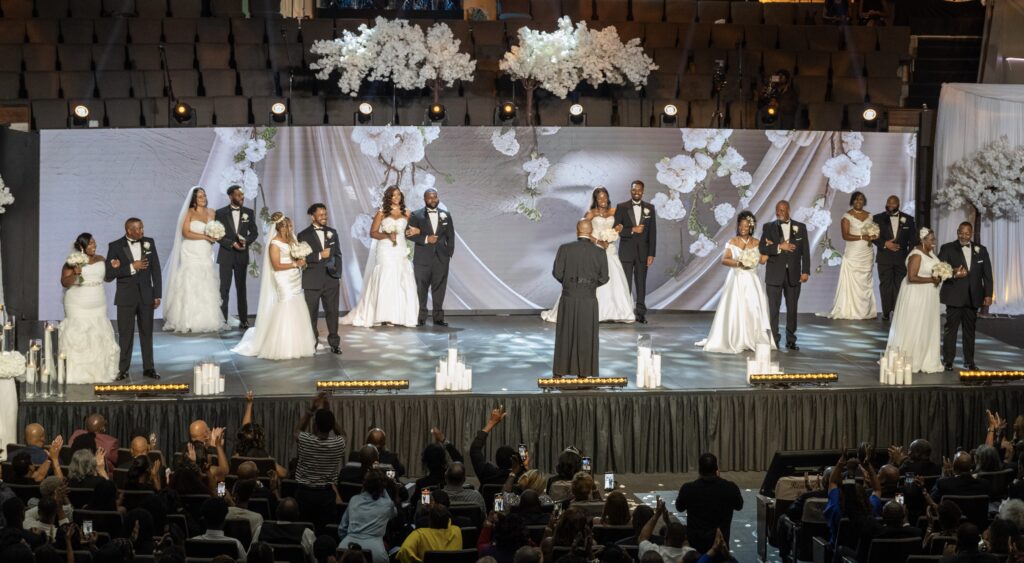
This isolation can be overwhelming. When couples struggle privately while presenting perfection publicly, they miss opportunities for community support that events like the Grand Wedding provide. Relationship expert Dr. John Gottman calls this the “distance and isolation cascade” because when couples handle problems alone, they lose emotional connection and social support, which can trigger loneliness and missed opportunities for community engagement.
Expert D. Ivan Young, who incorporates behavioral neuroscience with coaching, argues that the psychological difference between cohabitation and marriage is more than just about social recognition.
“Cohabitation often carries a sense of ‘we can leave if it doesn’t work,’” he said. “Marriage, by contrast, shifts the psychological framework to permanence. That shift changes how couples handle conflict, build wealth, and envision the future.”
The brain, Young notes, responds differently when it perceives commitment as binding, reducing uncertainty and increasing resilience. This neurological shift may potentially explain why married couples tend to grow wealth at higher rates and report different approaches to conflict resolution.
Casondra Burkley, a licensed clinical social worker-supervisor based in the Houston area and founder of Conquering the Obstacles of Painful Experiences (C.O.P.E.), brings both clinical expertise and pastoral insight to the marriage conversation. Burkley, an ordained pastor with degrees in psychology and social work from Baylor University, sees the integration of faith and clinical practice as necessary rather than optional.
“When couples commit to months of therapy, they uncover and begin to heal the emotional landmines that would otherwise explode later,” she said. “They learn how to regulate emotions by facing discomfort together and creating new ways of relating.”
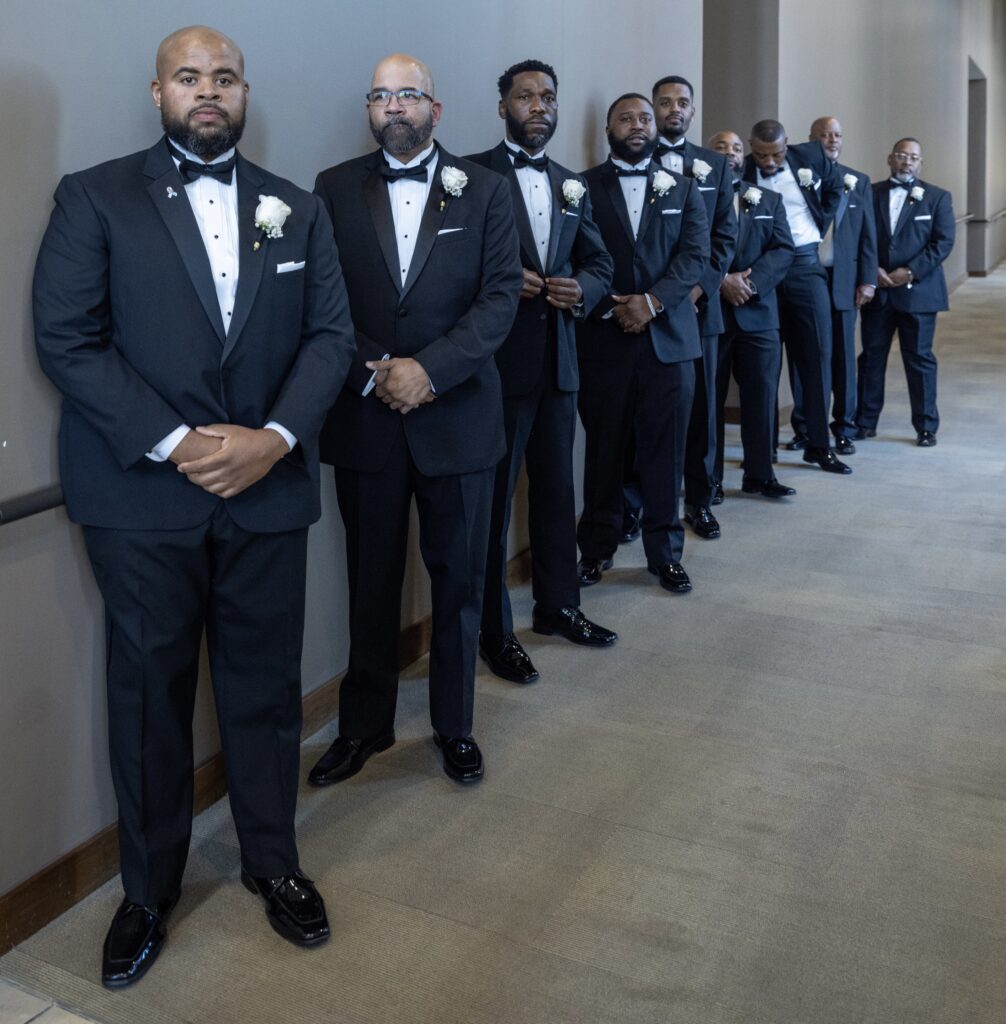
Perhaps nowhere is the complexity of Black marriage more obvious than in how couples approach inherited expectations about gender roles and partnership. Burkley guides couples through an exercise that helps them identify the unspoken rules they’ve carried from their families of origin.
“Often, these are subconscious values shaped by how they were raised,” she noted.
The solution isn’t to ditch cultural wisdom, but to consciously choose which traditions serve the partnership, according to Burkley.
“Couples create what I call a ‘Couples Bible,’ a personalized set of rules, values, and guidelines that they choose together,” Burkley said. “This shifts the mindset from ‘That’s the way my momma did it’ to ‘This is the way we choose to do it.’”
The implications of marriage trends in the Black community are far-reaching. Young has observed the ripple effects firsthand.
“Strong marriages create ripple effects. Children thrive with more stability, while couples are better positioned to build wealth, invest in, and mentor others,” he said.
Marriage also offers significant financial advantages. Research consistently shows that married couples accumulate wealth more effectively than single individuals or cohabiting partners. A sociological study by W. Bradford Wilcox, professor of sociology at the University of Virginia and senior fellow at the Institute for Family Studies, found that married couples have more than $640,000 in assets on average, compared to just $167,000 for divorced or never-married individuals before retirement age.
This wealth gap stems from several factors. Married couples benefit from economies of scale when sharing living costs, and marriage often encourages stronger savings habits. These combined advantages lead to higher per capita savings and lower overall spending compared to their unmarried peers. This advantage adds up over generations, affecting everything from homeownership rates to educational opportunities for children.
The most surprising aspect of conversations with these marriage professionals is their unanimous rejection of deficit-based ideas about Black relationships. Andre wants to see “more conversations about the nuances of Black marriage, especially when it comes to the joys and challenges of life.” She advocates for normalizing both the struggles and the solutions, rather than treating successful marriages as exceptional.
Burkley’s perspective is even more direct.
“Black marriage is not marked by dysfunction or deficiency and it is defined by resilience. The statistics about declining marriage rates don’t tell the full story,” Burkley said. “Strong Black marriages are not disappearing but evolving.”


